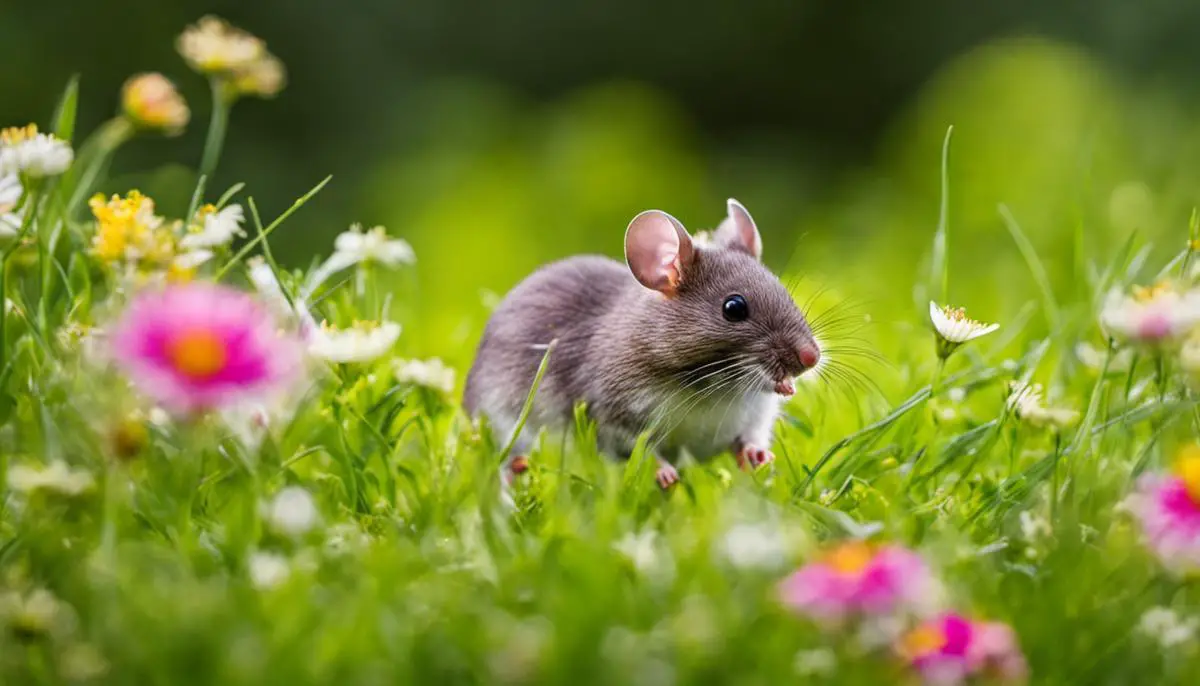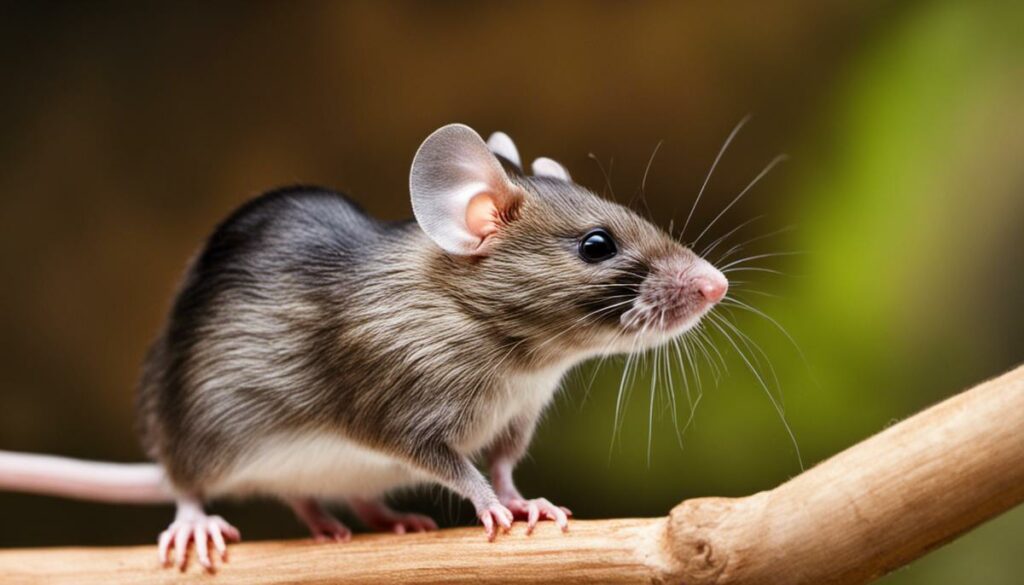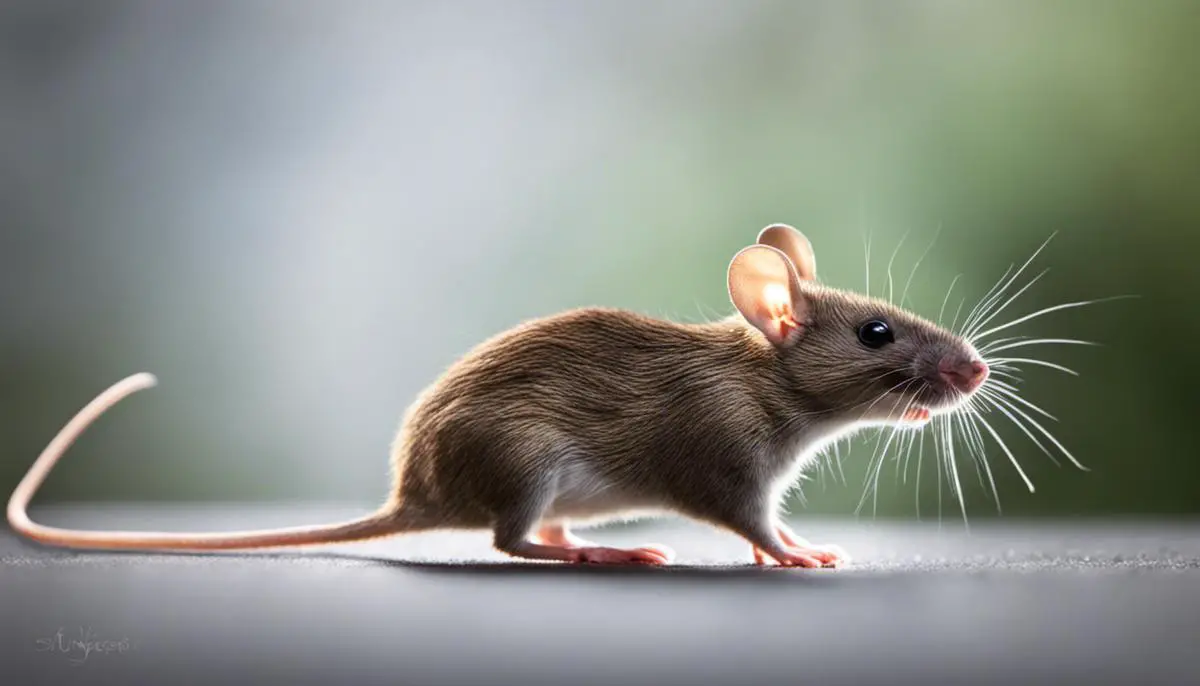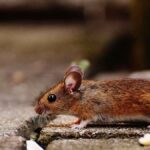Many individuals, at one point or another, face the challenge of a mouse infestation. Dealing with these unwelcome guests can be particularly daunting, but understanding the behavior of mice and discovering natural repellents are fundamental steps to resolving this issue. We live in a world where chemical solutions dominate pest control methods, but it’s equally important to explore how natural approaches can eliminate mice efficiently. A thorough comprehension of their dining, breeding, and nesting preferences, along with the use of safe deterrents such as mothballs or homemade repellents, can make all the difference in this battle against tiny invaders.
Understanding Mouse Behavior
Becoming Mice-Savvy: Understand Their Behavior and Habitats
As parents, we always want to maintain a home environment that’s clean, safe, and completely comfortable for our loved ones. But sometimes, despite our best efforts, we may encounter some unexpected and uninvited guests – like mice. Now, we might have a soft spot for the little furry characters in our children’s storybooks like Stuart Little, but having actual mice in your house is a different story!
If we want to deal with these furry invaders in the best possible way, we need to understand their behaviors and habitats. So, whether you’re concerned about an ongoing problem or simply arming yourself with knowledge, let’s dive into the world of mice!
Behavior of Mice
-
Nocturnal Creatures: Invite a mouse to a daytime tea party, and you’ll likely be waiting quite a while. Mice are primarily nocturnal creatures, most active during the nighttime. You might notice them scampering about or hear them gnawing on things when all else is quiet.
-
Quick Breeders: Babies are cute, right? Maybe not when there are dozens of baby mice running around your home. These creatures reproduce quickly, which can escalate a minor issue to a serious infestation in no time.
-
Expert Climbers and Jumpers: It’s easy to underestimate a mouse’s physical abilities, given their small size. But these critters can actually leap up to 13 inches high and scale vertical surfaces, which can make blocking their paths quite the challenge.
-
Fearful, Yet Curious: Mice aren’t aggressive, but they are curious. A new smell or the sight of a delicious treat may attract them into previously unexplored zones. But on sensing danger, it’s their fear that dominates, and they’re known to scatter and scamper to safety.
Habitats of Mice
-
Love for Seclusion: Mice typically prefer quiet, secluded areas that offer easy paths to food sources. Basements, attics, junk piles, and cluttered cabinets make ideal housing options for them due to the hidden, cozy corners they can nest in.
-
Indoor Environments: Mice typically seek shelter indoors, especially in colder weather. They love the comfort and warmth that homes provide, not to mention the readily available food supply.
-
Choosing Materials for Nests: Mice build their nests using soft, cozy stuff like shredded paper, fabric, or dried plant matter. So, those old clothes in your garage or loose papers in your attic? Prime nesting material.
Understanding the common behaviors and habitats of mice can help you fortify your home effectively against these critters. Remember, a knowledgeable parent is a prepared parent. So, take what you’ve learned here and apply it in keeping your home mouse-free!
Keep embracing the world with your caring spirit and ensure your loved ones live in an environment that’s always comfortable, safe, and intruder-free. After all, our homes are our own castles, so let’s keep them that way—free of any uninvited, furry guests.
Stay mouse-savvy, and keep your homes safe and sound!

Natural Repellents for Mice
Unlock Your Home’s Defense: Effective Natural Rodent Repellents
Mice can be more than a nuisance, and anyone who has ever had to deal with them knows it. They can cause damage to your home, are carriers of diseases, contaminate food, and even trigger allergies. While we have pondered on the mouse behavior thus far, it’s now time we discuss combating these fuzzy unwanted guests.
One of the most effective ways to deter mice naturally is by using strong scents they find unpleasant. It’s a brilliant strategy that requires an understanding of their strong sense of smell. Mice are deterred by scents that are strong, spicy, or alien to them. Peppermint oil, for instance, can work wonders due to its strong and overpowering scent. Soak cotton balls in the oil and place them where you suspect mouse activity. Similarly, the spicy fragrance of cayenne pepper can also put them off. Sprinkle some in entry points, ensuring the peppery scent sends them back where they came from.
Ever heard mice hate the smell of used kitty litter? Well, it’s true! Mice are naturally terrified of cats, a good old enemy. The scent of used cat litter signals the presence of a feline predator in the territory, scaring away any potential invader.
Onions, with their sharp potent aroma, can also serve as repellent. However, remember they must be replaced often as they rot over time.
Another natural option is raw, uncooked rice. Leaving out bowls of uncooked rice can work because mice, unlike many pests, can’t digest uncooked substances easily. This can keep them away, making your home not so appealing anymore.
Now, would you believe if we say aluminum foil can scare off mice? It can! Mice hate the noise and feel of aluminum. Just crumple some up and place it where you believe mice might go. They will avoid walking on it, steering clear of the area.
Remember, the victory against mice lies in consistency. Regular application or placement of these natural deterrents is key to maintaining a mouse-free space over time while always ensuring the safety of kids and pets. Prevention, in this case, is always better than cure. So seal off potential entry points, keep your house and surroundings clean, minimize clutter, and store food properly to make your home a no-mouse zone.
By pulling from nature’s toolbox and making some small changes in your habits, you can create an environment in your home where mice don’t wish to linger. It’s all about making your home a fortress – inviting for loved ones but a bane for unwanted pests.
(Natural repellents are significant but shouldn’t be relied on as the sole method of repelling mice. Consulting a pest control expert might be required for active infestations.)

Preventive Measures Against Mice
Preventative Steps to Keep Mice at Bay
Maintaining Hygiene and Tidiness
This journey begins at home. Simply put, cleanliness is a major deterrent for mice. They are opportunistic scavengers who will be attracted to areas with readily available food sources. As such, maintaining a clean, orderly home can help keep these intruders at bay. Regularly cleaning up crumbs and messes in the kitchen, storing food in airtight containers, and ensuring the garbage is well-sealed, are wonderful first steps towards mice prevention.
Sealing Possible Entries
Mice can sneak through tiny cracks and holes, making almost every nook and cranny a potential entry point. Check around the house for spaces around pipes, gaps in the eaves, or even cracks in the home’s foundation. Once found, these should be promptly sealed. Steel wool or caulking can effectively close up these potential entry points.
Properly Storing Yard and Garden Materials
Piles of wood, garden debris, or other such materials can serve as the ideal shelter for mice. It’s suggested to store these materials a few feet above the ground and away from the home’s walls to avoid giving an easy refuge to these pests. Moreover, keeping the yard and lawn maintained can reduce the likelihood of mice visiting. Tall grass and weeds can offer mice protection from predators, so practical lawn care also helps to deter these pests.
Enlisting the Help of Natural Predators
It’s a fact of nature that mice have their predators, and humans can enlist these hunters’ help to keep mice away. Encouraging local animals, such as owls and cats that prey on rodents, can help control the mouse population around the house. Installing an owl nesting box can invite these winged hunters to reside near your home and help regulate the rodent population.
Using Commercial Repellents and Traps
If a natural dispute doesn’t seem to be working, anxiety can be eased by using commercial mouse repellents. These can be found in most home improvement stores and online. Consider trying ultrasonic repellents, emitting high-frequency sounds that mice find unpleasant. Mouse traps can also be an effective preventative measure; however, they should be handled carefully and kept out of reach of children and pets.
Understand that Preventative Measures Can Take Time
It is important to remember that eviction can take a bit of time when you’re dealing with mice. Some of the methods mentioned above take consistent effort over a period of time to be successful. Stick with it and persevere because a mouse-free home is worth the effort!
In the end, it may be necessary to seek professional help if an infestation is suspected or in cases where prevention efforts aren’t producing the desired results. Experts in pest control have the knowledge and tools needed to eradicate these pests permanently and safely from the home.
As families, we strive to create a safe, clean home for our loved ones. By putting routine, diligent prevention measures into place, we can greatly reduce the risk of a mice infestation. And always remember, don’t hesitate to reach out to professionals when needed. They are there to help, so we can focus on what truly matters – enjoying and creating precious memories with our beautiful families.

As we have discovered, preventing and combatting a mouse infestation doesn’t necessarily require harmful or chemical methods. There are numerous natural tools and techniques at our disposal to ensure mice are naturally discouraged from our homes. A crucial part of this task is understanding that cleanliness, careful attention to potential entry points, and mindful handling of food sources can greatly assist in this endeavor. By incorporating these strategies, along with using safe and natural repellents, we are not only protecting our homes but also ensuring a humane approach toward one of nature’s most resilient creatures – the humble mouse.








